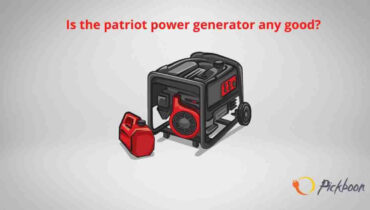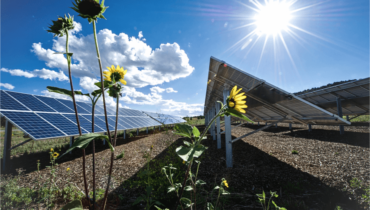Table of Contents
Solar panels have become increasingly popular as a renewable energy source, offering both environmental benefits and long-term savings on electricity bills. If you’re contemplating renewable energy options and wondering which is better inverter or solar panels, it’s essential to understand the role each plays in the overall system for optimal performance. If you’re considering investing in solar panels, it’s essential to understand how long they last on average. In this article, we will delve into the factors influencing the lifespan of solar panels and how to maximize their longevity.
Solar panels have an average lifespan of 25 to 30 years, making them a long-term investment in renewable energy. Factors affecting their longevity include quality, maintenance, climate, and the degradation rate. High-quality materials and manufacturing processes can lead to a more extended panel life. Regular cleaning and maintenance help maintain efficiency.
Climate conditions and environmental impacts, like extreme weather and pollution, can influence how long panels last. On average, solar panels degrade at a rate of 0.5% to 1% per year. By considering these factors and following best practices, you can maximize the lifespan of your solar panels and continue to enjoy the benefits of clean energy for decades.
Factors Affecting Solar Panel Longevity
Several key factors influence the longevity of solar panels. Understanding how long do solar panels last involves recognizing that the quality of materials and manufacturing processes, coupled with regular maintenance and cleaning, is crucial for ensuring an extended panel life. The lifespan of how long do solar panels last on a house is influenced by environmental conditions, including climate and pollution levels, which can have an impact on their overall longevity. Solar panel degradation rates, varying with quality and conditions, are essential to consider, as they determine long-term efficiency.
Proper installation and climate considerations also play a significant role in ensuring panels remain productive over time. By addressing these factors, you can maximize the lifespan of your solar panels and protect your investment. Several key factors can significantly impact how long your solar panels will last:
Quality of Materials and Manufacturing
The quality of the materials used in solar panels and the manufacturing process are crucial determinants of their lifespan. Exploring the possibility of can you live off grid with solar panels becomes more viable when considering that high-quality solar panels are specifically designed to withstand harsh environmental conditions, ensuring their efficiency is maintained for an extended period.
Maintenance and Cleaning
Proper maintenance and regular cleaning play a vital role in ensuring the longevity of solar panels. Dust, dirt, and debris can accumulate on the panel’s surface, reducing its efficiency over time. Cleaning your panels periodically can help maintain their performance.
Climate and Environmental Conditions
The climate and environmental conditions in your area can affect how long solar panels last. Extreme weather, such as hailstorms, hurricanes, and heavy snowfall, can damage solar panels. Additionally, exposure to high levels of air pollution can lead to faster degradation. If you’re in Florida and considering solar panel installation, you might be wondering how long do solar panels last in florida region’s unique environmental conditions. Top 5 Average-Cost Solar Panels
- Renogy 400W Portable Solar Panel Foldable Monocrystalline Solar Blanket
- RenogyRenogy 2PCS 100 Watt Solar Panels 12 Volt Monocrystalline
- Renogy Solar Panel 100 Watt 12 Volt, High-Efficiency Monocrystalline PV Module Power Charger
- Go Power! Overlander 190W Solar Kit with 30-amp Solar Controller, black
- HME Solar Power Panel
Renogy 400W Portable Solar Panel Foldable Monocrystalline Solar Blanket:
This product is a foldable, portable solar panel blanket with a high-efficiency monocrystalline design. It offers substantial power output and is ideal for outdoor activities like camping, and RV trips, or as a power source for solar generators.
Renogy 2PCS 100 Watt Solar Panels 12 Volt Monocrystalline:
These are high-efficiency monocrystalline solar panels that come as a set of two. They are designed for easy installation and are commonly used for various off-grid applications. The package may also include a solar charge controller.
Renogy Solar Panel 100 Watt 12 Volt, High-Efficiency Monocrystalline PV Module:
This is a single 100W monocrystalline solar panel designed for charging applications. It can be used for various purposes, including powering small devices or charging batteries. There’s also a separate solar panel mounting kit available.
EF ECOFLOW 2PCS 100W 12V Solar Panels:
These are two 100W 12V monocrystalline solar panels that come with IP68 waterproofing. They are suitable for RVs, marine rooftops, and other outdoor applications, especially when you need waterproof and durable solar solutions.
Go Power! Overlander 190W Solar Kit:
This kit includes a 190W solar panel and a 30-amp solar controller. It’s designed for off-grid use and is particularly suitable for powering RVs or other vehicles. The solar controller ensures efficient energy management.
HME Solar Power Panel:
The specific details of this solar panel are not provided, but it likely serves as a power source for various outdoor and off-grid applications, particularly in the realm of hunting and outdoor equipment.
Note: These products offer a range of options for harnessing solar energy to power various devices and systems, making them versatile solutions for a variety of off-grid and outdoor scenarios. The choice of which one to use would depend on your specific needs and the scale of your solar energy requirements.
Solar Panel Degradation Rate
Solar panels are not immune to wear and tear, and they experience a gradual reduction in efficiency over time. This is known as the degradation rate, and it varies based on the quality of the panels, the materials used, and the environmental conditions. On average, most solar panels have a degradation rate of about 0.5% to 1% per year. This means that after 25 to 30 years, the panels will still operate at around 75-80% of their original efficiency.
Extending the Lifespan of Solar Panels
Extending the lifespan of solar panels is achievable through various strategies. Regular maintenance, including cleaning and inspection, helps panels operate efficiently for longer periods. Proper installation by qualified professionals ensures their durability and performance. Consider your local climate, as tailored solutions can withstand harsh weather conditions.
Minimizing wear and tear and addressing issues promptly contribute to longevity. Investing in high-quality panels can make a substantial difference in their overall lifespan. By implementing these measures, you can maximize the return on your solar panel investment and continue to benefit from renewable energy for years to come. If you’re considering the installation of solar panels, understanding what should be the tilt angle for solar panels is key to optimizing their performance. While solar panels have a finite lifespan, there are steps you can take to maximize their longevity:
Regular Maintenance
Regular maintenance includes cleaning the panels, checking for damage, and ensuring the wiring and connections are in good condition. By addressing issues promptly, you can extend the life of your solar panels.
The quality of the materials used in solar panels and the manufacturing process plays a critical role in their longevity. High-quality panels are designed to withstand harsh environmental conditions and maintain their efficiency for a more extended period.
Proper Installation
The way solar panels are installed can affect their lifespan. It’s essential to hire qualified professionals to install your solar panels correctly, ensuring that they are securely mounted and oriented optimally to capture sunlight. If you’re curious about what is the optimal direction for solar panels, seeking expert advice during installation is crucial for maximizing energy efficiency.
Proper maintenance and regular cleaning are essential for the longevity of solar panels. Dust, dirt, leaves, and bird droppings can accumulate on the panel’s surface, reducing its efficiency over time. Regular cleaning and maintenance can help ensure that your panels perform optimally.
Climate Considerations
If you live in an area prone to severe weather conditions, it’s wise to invest in solar panels designed to withstand those conditions. In considering of how does temperature affect solar panel efficiency, it’s noteworthy that some manufacturers provide panels equipped with enhanced durability features specifically designed for areas with extreme climates.
The climate and environmental conditions in your area can significantly affect how long solar panels last. Exposure to extreme weather events, such as hailstorms, hurricanes, heavy snowfall, and high winds, can damage solar panels. Additionally, areas with high levels of air pollution may experience faster degradation.
Solar Panel Degradation Rate
Solar panels experience a gradual reduction in efficiency over time due to a phenomenon known as the degradation rate. The degradation rate can vary based on the quality of the panels, the materials used, and the environmental conditions.
On average, most solar panels have a degradation rate of about 0.5% to 1% per year. This means that after 25 to 30 years, the panels will still operate at around 75-80% of their original efficiency.
Solar Panel Recycling and Sustainability
Solar panels are designed to be environmentally friendly, but it’s essential to address their end-of-life disposal. Recycling solar panels is crucial to reduce the environmental impact of their waste. Additionally, if you’re considering the configuration for your solar panel setup and wondering which is better series or parallel solar panels, it’s important to weigh the environmental impact along with efficiency considerations. Many countries have established recycling programs to ensure that old panels are properly disposed of and that valuable materials can be reused.
Solar panel recycling and sustainability are vital considerations as panels reach the end of their life. Recycling programs have been established in many regions to reduce environmental impact and recover valuable materials. Proper disposal and recycling ensure that old panels don’t end up in landfills.
Reusing materials reduces the demand for new resources and lowers energy consumption. Sustainable practices in solar panel production, such as reducing carbon emissions and resource usage, contribute to a greener energy transition. By participating in recycling programs and supporting eco-friendly production, we can make solar energy an even more sustainable and environmentally friendly choice for the future.
FAQs
1. How long do solar panels typically last?
On average, solar panels have a lifespan of 25 to 30 years. However, the actual lifespan can vary depending on several factors, including the quality of the panels, maintenance, and environmental conditions.
2. Can I extend the lifespan of my solar panels?
Yes, you can extend the lifespan of your solar panels by investing in high-quality panels, performing regular maintenance, ensuring proper installation, and considering climate conditions in your area.
3. What causes solar panel degradation?
Solar panel degradation is the gradual reduction in efficiency over time. Factors like exposure to UV rays, extreme weather, pollution, and manufacturing quality can contribute to degradation.
4. Do I need to clean my solar panels regularly?
Yes, regular cleaning is recommended to maintain the efficiency of your solar panels. Dust, dirt, and debris can accumulate on the panel’s surface, reducing their performance. Cleaning them periodically helps ensure they operate at their best.
5. What happens when a solar panel reaches the end of its lifespan?
When a solar panel reaches the end of its lifespan, it may still generate electricity, but at a reduced efficiency. Many countries have recycling programs to properly dispose of old panels and recover valuable materials.
Conclusion: Maximizing Your Solar Panel Investment
In conclusion, the average lifespan of solar panels is around 25 to 30 years, but several factors influence their longevity. Investing in high-quality panels, regular maintenance, and proper installation can extend their life. Moreover, being mindful of the environmental impact and recycling old panels is essential for sustainable energy practices.
By understanding the factors affecting the lifespan of solar panels and taking appropriate measures, you can ensure that your solar panel investment remains productive and eco-friendly for many years to come.

